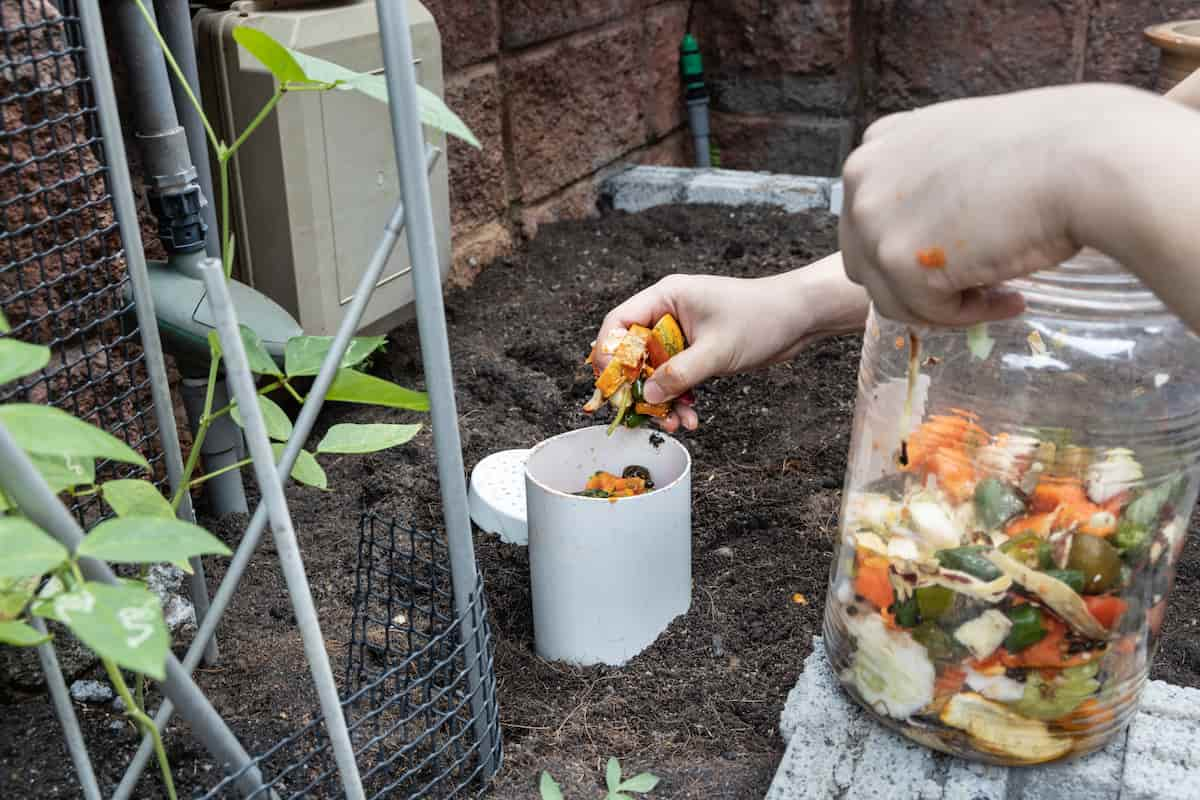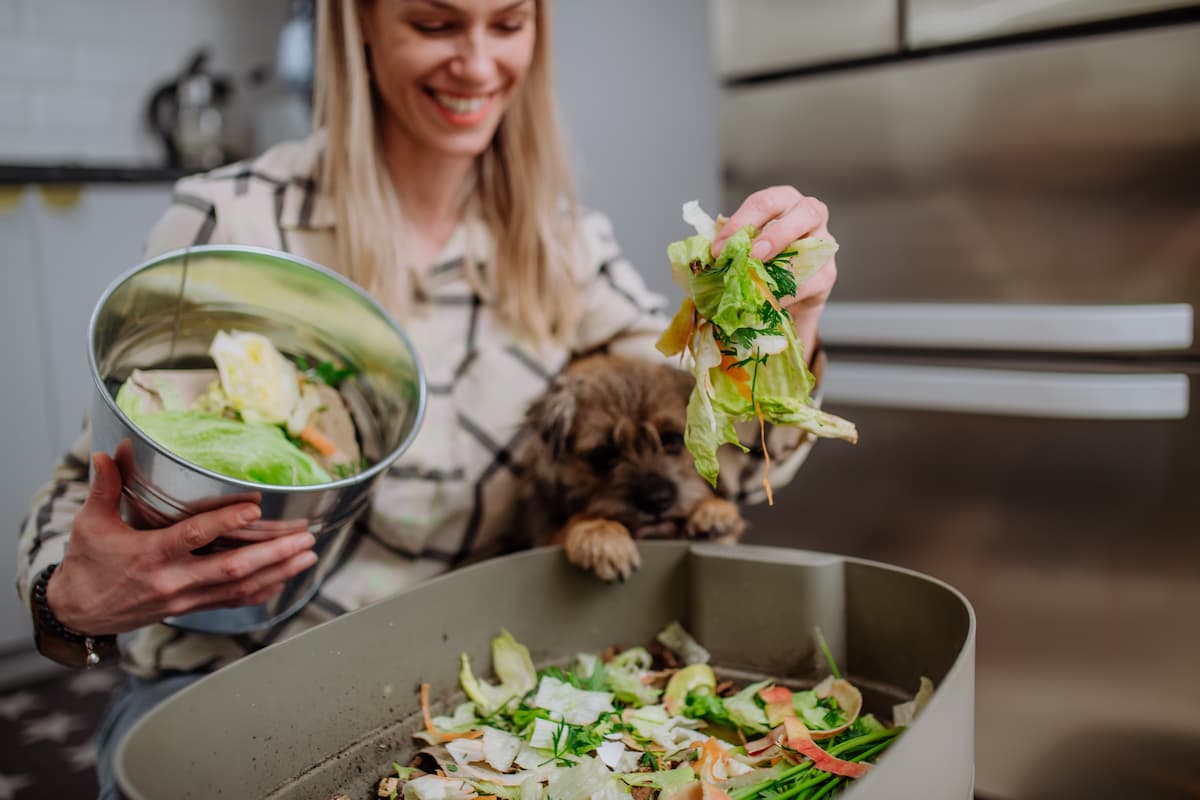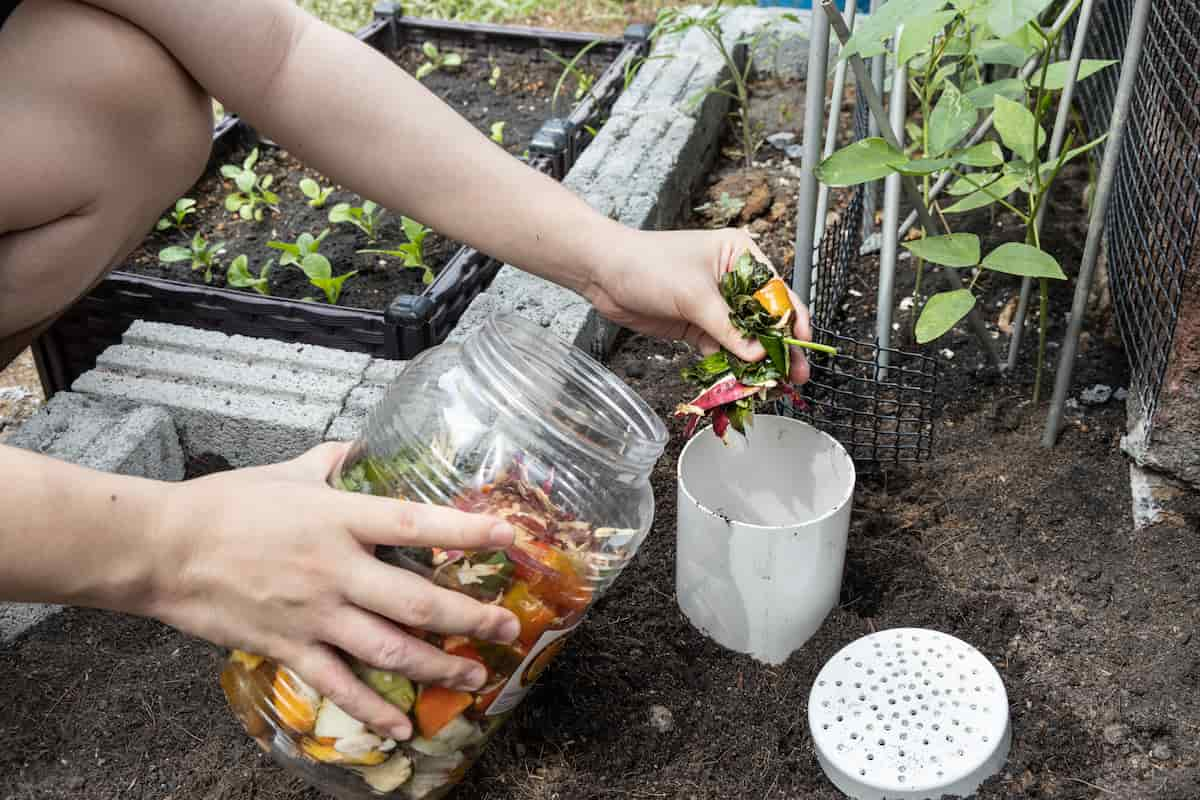Composting allows you to turn food waste into a useful resource. Following a few simple procedures, you can make your own organic fertilizer at home from kitchen waste and other organic waste. It not only cuts down on waste but also gives a nutrient-rich solution for your plants. This blog will take you through a step-by-step process for making fertilizer from kitchen waste, which will improve your health and the earth’s health.

Kitchen Waste Into Nutrient-Rich Organic Fertilizer
What Is Organic Fertilizer?
Organic fertilizer is made from composting kitchen waste, creating nutrient-rich soil for plants. It is free from chemicals and provides a well-balanced blend of nutrition for healthy soil and strong plant growth. Composting is a natural process that uses microbes to break kitchen waste into compost. Using organic fertilizer is good for the environment and your plant health.
Will Kitchen Waste Decompose Into Compost?
Food wastes from the kitchen may be composted by combining green and brown matter, chopping trash into little pieces, and turning the compost bin to mix and oxygenate the compost. Before being distributed uniformly over crops using a garden fork, the compost must be black and soil-like. Kitchen waste composting eliminates waste and supplies fertilizer for growing plants.
Easy Methods for Transforming Kitchen Waste Into Organic Fertilizer
Preparation of Kitchen Waste
- Select suitable organic waste, such as fruit and vegetable peels, eggshells, and overripe produce
- Store in a cool, dry environment
- Avoid adding fats, oils, fatty meats, and milk products
Collection of Garden Waste
- Incorporate natural waste, such as grass clippings and leaves
- Add collected waste from lawnmowing to the compost bin
Composting Process
- Mix prepared kitchen and garden waste in the compost bin
- Ensure the compost bin has proper ventilation and a handle for mixing and oxygen incorporation
- Turn the compost bin two to three times daily
Increasing Soil Fertility
- Wait for the compost to become dark-colored and well-prepared
- Spread compost over desired garden areas using a garden fork
- Observe the impact before applying additional fertilizer
Following these simple steps, you can convert kitchen waste into a nutrient-rich organic fertilizer for your garden. Not only does this process reduce waste, but it also helps to improve soil fertility.
Create Organic Homemade Fertilizer from Kitchen Waste
Fish Fertilize
It is a nitrogen-rich substance that increases plant development and soil microbes. It may be produced with either pre-purchased fish or leftovers after cleaning fish. Fill a two-thirds bucket with fish scraps or pieces, add an equal quantity of brown organic waste, and stir in molasses and seaweed for added nutrition.
In case you missed it: How to Make Liquid Fertilizer from Kitchen Waste: DIY, Simple Preparation Steps

Stir the mixture regularly for weeks, drain the liquid, and compost the crumbs or pieces. After combining one cup of fertilizer with one gallon of water, the fish fertilizer is ready to use. This DIY fish fertilizer is a less expensive alternative to commercial fertilizers.
Making Eggshell Fertilizer
Boil 20 clean and dry eggshells overnight to make eggshell fertilizer.Strain the liquid to get a calcium-rich solution for your vegetable garden, which will help to boost tomato and pepper growth. The leftover eggshells can be reused in the garden as well.
Making fertilizer from Wood Ash and Vermin Wash
It creates a fertilizer rich in calcium and magnesium from the ash and nitrogen from the vermi wash. Make sure the urine is organic and not from a source of medication for best results. This homemade fertilizer has been shown to increase the yield of tomatoes. It can be a great solution for boosting soil and plant growth.
Compost Tea Fertilizer
It is a simple and natural fertilizer made from homemade organic compost. This fertilizer is rich in essential nutrients that promote fast and healthy plant growth.
Banana Peel Fertilizer
It is an efficient approach to supplement your soil with potassium and other critical nutrients. Dry and grind banana peels, eggshells, and Epsom salt into a powder to produce the fertilizer. In a spray bottle, combine the powder and water and apply them to the soil or base of the plants, avoiding direct contact with the foliage. When dried, banana peels contain 42% potassium, phosphorus, calcium, manganese, sodium, magnesium, and sulfur, making them an excellent soil amendment.
Methods of Organic Fertilizer Making from Your Kitchen Waste: Diy, Simple Steps
Organic fertilizer is a great way to enrich the soil and improve the health of plants. Instead of buying chemical fertilizers, you can easily make organic fertilizer from kitchen waste in your own home. Here are two methods to make organic fertilizer from your kitchen waste.
- Method 1: Using a Container
- Method 2: Using a Plastic Sheet
Step 1: Collect Kitchen Waste
Collect vegetable waste, fruit peels, eggshells, nuts, and other dry organic materials. Avoid using oils, fatty meat, cheese, milk, and other moist waste, as they can create a bad odor.
Step 2: Add Kitchen Waste to a Container/ Plastic sheet
Use a suitable container for your fertilizer needs and add the collected waste. Place the container in a well-drained, dry, and open area.
Step 3: Add Organic Materials
Add brown organic materials such as dry leaves, sawdust, or livestock manure to control the moisture in the compost. If you don’t have access to these, you can buy them from a gardening supply store.
Step 4: Create the Compost
Put all the components together and add air to the mixture for good compost. Spin the mixture 2-3 times a day for better results. Make holes in the container for air circulation and drain excess water.
Step 5: Layer the Compost
Add organic waste to the mixture and ensure a constant oxygen flow to avoid a bad odor. Add dry leaves or sawdust if the mixture gets too moist.
In case you missed it: 11 Best Homemade Natural Garden Fertilizers: DYI for Houseplants, Vegetables, Flowers, and Herbs

Step 6: Use the Fertilizer
After 30-40 days, you will notice a change in the color of the fertilizer. It is ready to use when it has a soil-like texture and a dark color. Use a garden fork to fertilize the soil; never use your bare hands. Observe how plants react to the fertilizer and adjust the quantity accordingly.
Conclusion
Making organic fertilizer from kitchen waste is a cost-effective and environmentally-friendly way to give your plants the necessary nutrients. With simple steps and ingredients like vegetable waste, fruit peels, eggshells, and other organic materials, you can create a nutrient-rich compost for your plants in just 40-45 days. There are two methods for making the fertilizer: using a container or using a plastic sheet.
- Ultimate Guide to Ossabaw Island Hog: Breeding, Raising, Diet, and Care
- Ultimate Guide to Juliana Pig: Raising Facts, Size, Diet, Care, and Lifespan
- Raising Lleyn Sheep: Disadvantages, Price, Uses, Characteristics, and Care
- Ultimate Guide to Meishan Pig: Breed Facts, Breeding, Raising, and Care
- Ultimate Guide to Teacup Pigs: Raising, Diet, Lifespan, Cost, and Care
- Guide to Raising Poll Dorset Sheep: Facts, Profile, Characteristics, Uses, and Care
- Ultimate Guide to Bighorn Sheep: Characteristics, Diet, Lifespan, Breeding, and Lifecycle
- Ultimate Guide to Raising Katahdin Sheep: Farming Facts, Breed Profile, Uses, and Care
- Ultimate Guide to Raising Oreo Cows: Belted Galloways Farming Facts, Profile, Uses, and Care